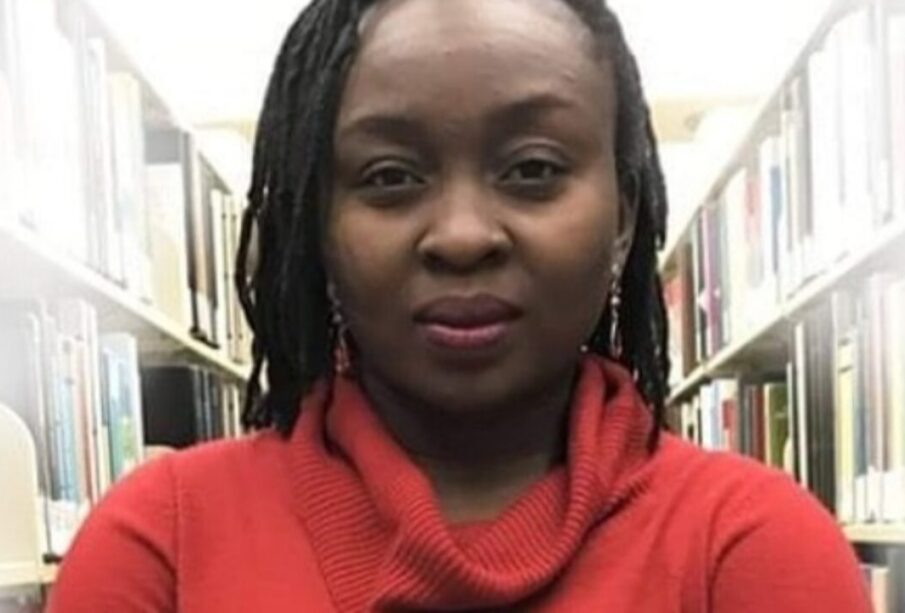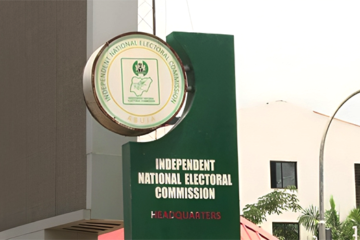Abortion and Nigeria’s hypocrisy [OPINION]

Abimbola Adelakun
By Abimbola Adelakun
In June, the Lagos State Government announced a policy document to guide safe abortions of pregnancy. The move was surprising. Abortion is one of those Nigerian realities we pretend does not exist. Abortion is hardly legal in Nigeria, but people still get it. From skilled doctors in their private hospitals to unskilled drug dispensers in local neighbourhood chemists, the procedure routinely happens. The government itself knows, but they have kept the anti-abortion laws on the books because of the nature of our society. We grandiosely show off the virtues we substantively lack.
After the announcement, I expected the usual resistance from organisations like the Catholic Church. Their organisation is full of men and women who are not even supposed to have sex but are nevertheless over-invested in other people’s reproductive choices. They did not disappoint. They came out swinging, saying they were not consulted before the government issued the guidelines. The pressure from various quarters must have worked because Lagos suspended the policy less than two weeks after the announcement. This was a policy the health bureaucrats claimed they worked on for years, gathering data and consulting experts, and designing a vision to help women who would have otherwise been casualties of maternal mortality. When it came to execution, they could not summon enough strength of conviction.
One would imagine a society like that would react fiercely to Reuters recently published investigative report detailing how the Nigerian Army has run a secret abortion programme alongside their battle against terrorism in the North-East. According to the report, the terrorists who invade communities in that region often perpetuate multiple atrocities, especially sexual violence, against women. The women survive the invasion of their lands to grapple with the psychological terror of the invasion of their bodies.
While some reprieve might come when the soldiers liberate them from their abductors, they soon found themselves being raped yet again, this time with medical equipment. For those soldiers who spend many days fighting maniac terrorists, forcefully aborting their seeds growing inside the women in whose bodies they had planted them was a continuation of the war against terrorism by another means. For the women, something was being extracted from them.
Some of the medical personnel involved in the programme too believe they do the women a favour by helping them remove the pregnancy they might not have wanted. But without the women’s consent, such salvific motive makes them no ethically different from the terrorists who raped them in the first place. It is an ethically messy situation. By the time the women have undergone that procedure, they would have been raped thrice—by the criminal insurgents, trained medical staff, and even the Nigerian state that failed to protect them.
It is one of the many paradoxes of Nigeria—you cannot get safe abortions legally, but they can carry out the procedure on you, illegally.
The prospect of sexual violence is one of the reasons women (and children) are usually the first to be evacuated from war zones. Otherwise, their bodies become an extension of the battlefield. There are many such documented examples in history. We will recall that a Nigerian journalist, Dele Olojede, won a Pulitzer Prize for reporting a similar story in Rwanda. During the genocide, a Tutsi woman whose entire family was wiped out had a child from the gang rapes she endured. The child was the only family she had left, but she could not embrace him because he was a painful reminder of the loss of everything dear to her. Women in North-East Nigeria must be going through similar psychological tension of trying to reconcile the life growing in their bodies to the source that contributed to it. Forcing it out of them is a cruel override of their body autonomy.
Our society, unfortunately, has shirked so much from debating abortions that we have no ready moral framework to prise this situation apart and do what is just for the women involved. So how have the Nigerian military and the government instead reacted? Denial, of course. The Nigerian Army expectedly denied the story, but nobody who knows their history will take their word for it. These are people who massacred the Shiites and walked away from the scene of their crime. What ideology or moral virtue do they ever demonstrate that suggests they are above carrying out a secret abortion programme? Another denier is information minister Lai Muhammed, the bat who emerges in daylight only when he wants to fight foreign media houses and corporations—CNN during and Twitter during #EndSARS, BBC, and now Reuters. Muhammed has no interest in the truth, he just wants to be seen punching above his weight. Now that he has yelled at Reuters, expect him to go into remission until another international organisation affords him a chance at some relevance.
Just like in previous instances, issues around abortions in Nigeria hardly ever go anywhere before they sink into the quicksand of the geography of poverty, and the politics of production and reproduction. This is an election season, and we can draw an example of this situation from the heightened reminders we are being issued about our population differences. Politicians, along with religious leaders, slyly point out how the regions of the country contribute differently to the nation’s commonwealth and its exploding population. They tell us that those who produce the least resources are the ones who consume the most because of their tendency to reproduce. By the time the issue of abortion legalisation raises its head, people are primed to be overly wary of a conspiracy to outbreed it. Beneath the veneer of morality that covers the anti-abortion noise in Nigeria is thus the instinct to fairly balance the population across the regions.
I should also note that some oppose abortion simply to exercise their will over others’ choices. That is why they manage to live comfortably in society like Nigeria where everything is designed to negate life, but only come out to flaunt their ‘pro-life’ membership badge when the subject is about abortion. If they are ideologically driven and not merely grandstanding, they would have stood up to be counted immediately after reading the Reuters publication. The same energy with which they have opposed safe abortion laws would have been oriented toward demanding an investigation to ensure justice for those women.
Finally, let me also unequivocally state that the issue here is not about whether abortion is right or wrong, but the usurpation of will. People should be able to choose abortion after they have weighed their situation and decided that it is the best decision for their lives. Contrary to how anti-abortion activists frame it, abortion decisions are not cheap. They are a significant personal decision and those who take it on behalf of someone else deprive them of moral agency.
Maybe if those women in the North-East had been asked, they would even have preferred abortion. Some would have chosen to have their children too, but the most important thing would be that they decided for themselves. In place of forcing them to ingest abortifacients or injecting them with the substance, why not put up a more humane structure whereby those women would go through counselling and therapy, be informed of their options, and be allowed to choose what they would with their bodies? You cannot claim to be saving them when you do not recognise their humanity enough to grant them the courtesy of determining their own lives.
Culled from The Punch











